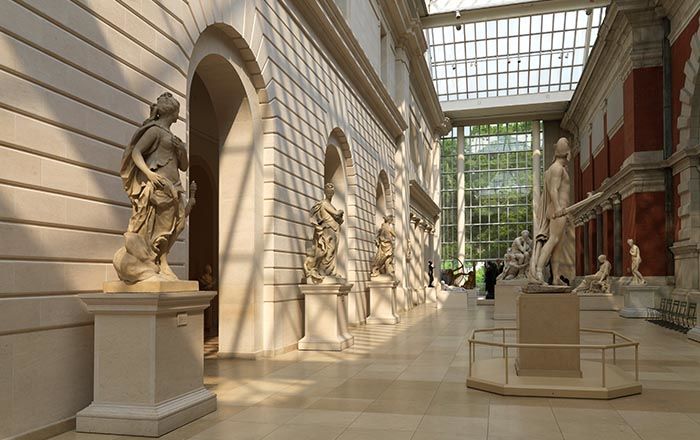Ewer (Schnabelkanne)
Workshop of Christian Knütgen
Not on view
This stoneware was produced on speculation for a middle-market clientele. Though handmade, its decoration was quick work, pressed on with reusable molds based on designs lifted from prints. Siegburg potters developed a reputation for interesting forms and the latest styles rendered in a distinctive gray-white glaze; lower end pieces (like a related Siegburg stoneware jug, 11.93.5) featured pewter rather than silver mounts. They were able to reach a huge market by distributing their work via trading posts controlled by the Hanseatic League, a powerful federation of merchant guilds and their market towns that included Lübeck, Cologne, London, Bruges, and later Antwerp and, to the north, Riga and Tallinn.
[Elizabeth Cleland, 2017]
Due to rights restrictions, this image cannot be enlarged, viewed at full screen, or downloaded.

